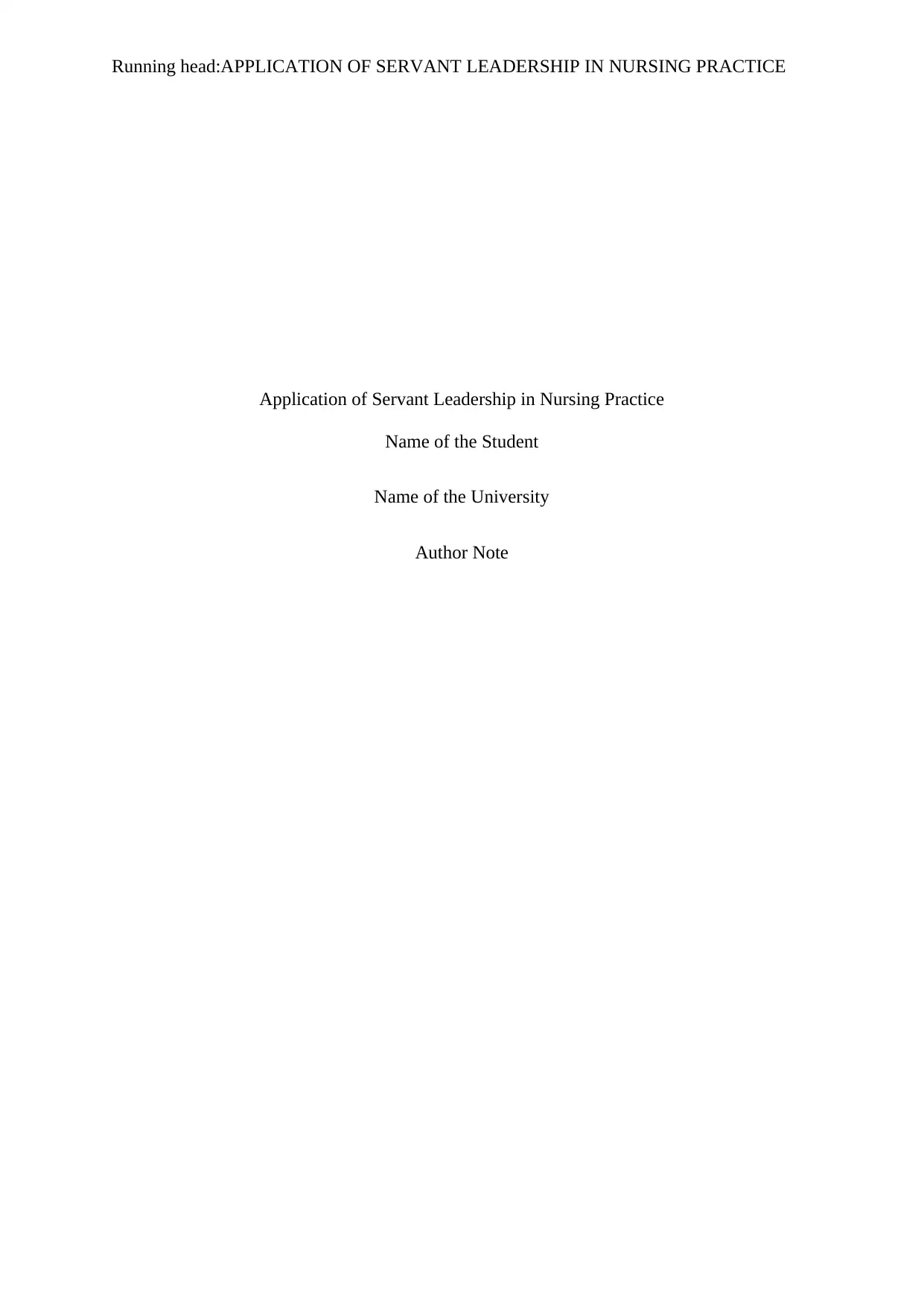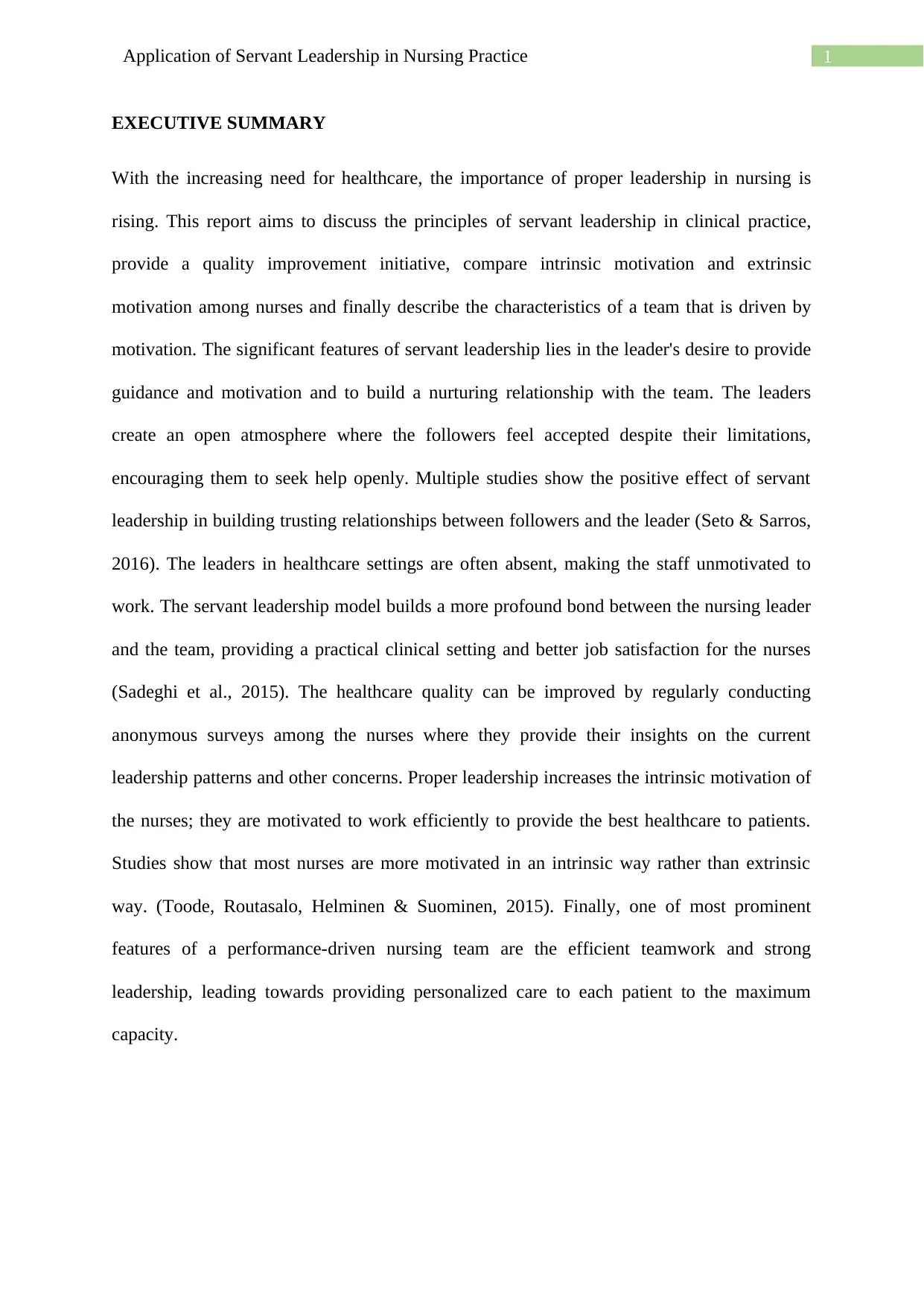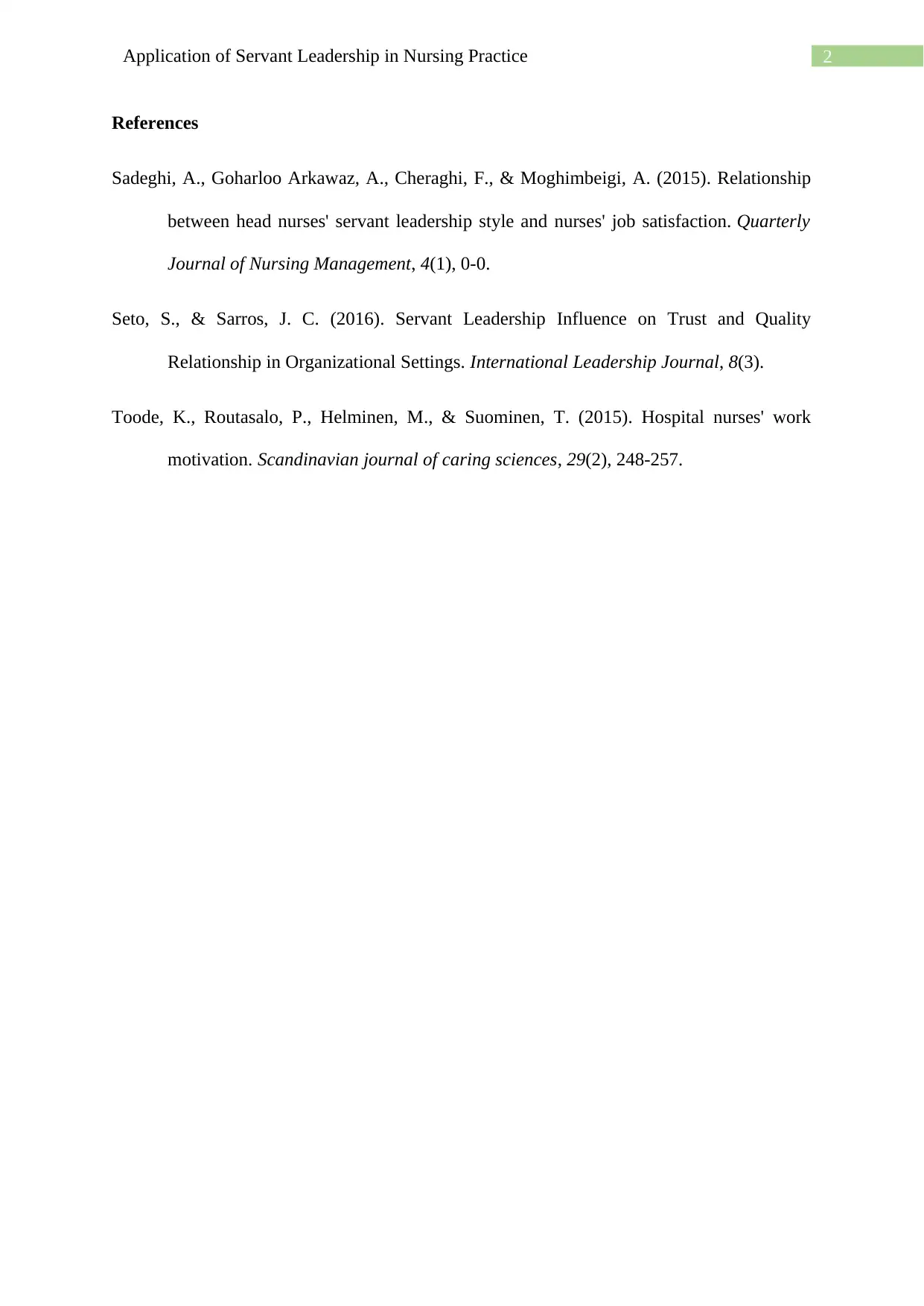Report on Application of Servant Leadership in Nursing Practice
VerifiedAdded on 2022/08/08
|3
|469
|36
Report
AI Summary
This report explores the application of servant leadership in nursing practice. It begins by discussing the core principles of servant leadership and its significance in clinical settings, emphasizing the leader's role in fostering motivation and building strong relationships within the nursing team. The report then proposes a quality improvement initiative through anonymous surveys to gauge leadership effectiveness and address concerns. It also compares intrinsic and extrinsic motivation among nurses, highlighting the importance of intrinsic motivation for efficient patient care. Finally, the report describes the characteristics of a high-performing nursing team, emphasizing teamwork and strong leadership in providing personalized patient care. The report references several studies to support its findings, providing a comprehensive overview of servant leadership's impact on nursing practices and outcomes.
1 out of 3










![[object Object]](/_next/static/media/star-bottom.7253800d.svg)